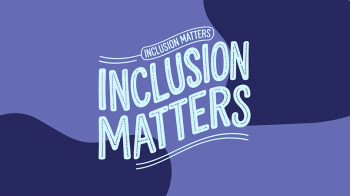Inclusive schooling embodies the vision of providing equal educational prospects to every child, including those with exceptional educational requirements or disabilities. It embodies the essence of fairness and reverence for diversity, empowering all children to unlock their potential. Inclusive schooling fosters a society characterized by acceptance and appreciation, where each child is embraced as a valued member of the educational community. This approach not only revolutionizes the educational system, but also shapes the destiny of our entire society.
The Benefits for students of inclusive education
Inclusive education encompasses a plethora of benefits for all individuals engaged in the educational voyage. It embraces a wide array of advantages for children with distinct educational requirements, nurturing their overall growth and facilitating their enthusiastic engagement within an academic environment. For typical learners, it cultivates qualities such as tolerance, empathy, and teamwork. For educators, it opens doors to creativity, adaptability, and personalized learning. Additionally, for society at large, it fosters an equitable and inclusive educational landscape that ensures equal opportunities for learning and growth. Inclusive education brings forth a plethora of benefits.
The following are a few of them:
- Firstly, it nurtures tolerance and respect for diversity among learners. Within inclusive classrooms, children learn to embrace each other's uniqueness and cultivate skills of cooperation and interaction.
- Secondly, inclusive education facilitates individualized support and assistance for children with special needs, without any sense of segregation. This plays a pivotal role in nurturing their potential and fostering self-esteem.
- Moreover, inclusive education creates an environment where all children can learn together and gain insights into one another's backgrounds, thus fostering the development of humanitarian values and intercultural understanding.
What is inclusive education?
Inclusive education is rooted in a foundation of fundamental principles. Firstly, there is the principle of equitable opportunities, which upholds the notion that every child deserves equal access to top-notch education and personalized support for their learning journey. Secondly, the principle of collaboration and synergy underscores the creation of an inclusive educational milieu where students can cooperate, uplift one another, and embark on their learning quests together. Furthermore, the principle of humanism and reverence for the inherent worth of each child strives to counteract negative influences on the learning process and cultivate positive self-esteem among students within inclusive environments. Another principle entails tailoring education to the individual, wherein learning materials and methodologies are adjusted to cater to the unique needs of each student. Inclusive education empowers students to overcome obstacles and reach their educational aspirations.
Use a variety of instructional formats to help a child with special learning needs
Implementing a wide range of instructional methodologies to cater to the requirements of students with unique learning needs is essential. The active involvement of both parents and teachers holds immense significance in providing necessary assistance and fostering the growth of these students. Building a relationship of trust between parents and teachers is paramount to collaborate effectively on the child's development. Parents can actively engage in the educational process by communicating with special education teachers, sharing information about their child's needs, and providing guidance. Teachers, on the other hand, should possess the knowledge and skills necessary to work with students with special needs. They should employ a variety of techniques and approaches, adopt inclusive teaching practices, and provide additional support when necessary. Acknowledging the individuality of every child and customizing their learning approach to suit their needs is of utmost significance.
The research basis for inclusive education
Developing inclusive educational settings within schools is crucial in fostering a climate of inclusivity and facilitating equitable learning opportunities for all students. This encompasses not only modifying curricula and instructional approaches, but also creating an environment that is physically and psychologically conducive to the inclusion of diverse learners. Inclusive schools should prioritize ensuring accessibility for students with special needs, providing the necessary support and accommodations, and actively encouraging their full participation in the learning process. Regular assessment and evaluation of the effectiveness of inclusive education are essential to continually improve its quality and outcomes. In Ukraine, inclusive education has emerged as a significant priority within the education system, especially with the growing popularity of distance learning. The TeMa platform offers specialized tutors who are equipped with the knowledge and expertise to support and guide children with special needs, ensuring they receive the essential education they deserve.
Inclusive classroom strategies
However, it is vital to acknowledge that the successful implementation of inclusive education requires the provision of appropriate infrastructure and resources. Schools must be adapted to ensure accessibility for children with special needs, including the availability of specialized facilities and tools. Moreover, investing in the training and professional development of teachers is essential to enable them to effectively cater to the diverse needs of learners. Exploring online education options can also be beneficial in this regard. On the TeMa platform, you can find dedicated tutors who specialize in inclusive education and are enthusiastic about supporting your child's learning journey while making it an engaging and enjoyable experience.
Inclusive education not only provides equal opportunities for all children, but also nurtures their overall development. It empowers children with special needs to overcome challenges, nurture their abilities, and achieve their goals. Every child deserves the right to receive an education, and inclusive education ensures that no child is left behind.


-preview.png)